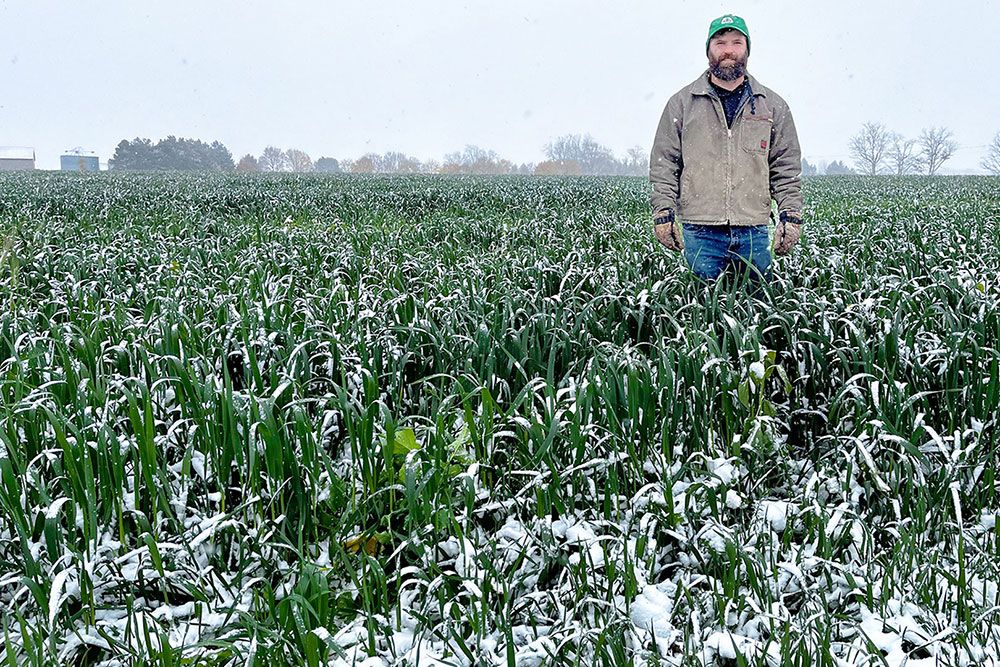Producer profile – Nathan Cann

Every acre covered – Local farmer taking soil health to the next level
Committed to cover crops: Blanketing every acre in green
An agricultural producer from Huron County, Nathan Cann, recently reached a milestone – he planted cover crops on 100 per cent of his acres.
When it comes to setting goals, farmers work to achieve high yields and produce high-quality crops to ensure their operation remains profitable. Yield is one measure of success. Soil health is another.
In this interview, with Ausable Bayfield Conservation’s Hope Brock, Nathan shares why he uses cover crops and what he’s learned in his journey towards his land being fully covered.
Meet Nathan Cann – Questions and answers with a farmer planting cover crops on all his acres
Hope: When did you first start using cover crops and why?
Nathan: Six years ago when I first started farming. I was looking into alternatives to deep tilling because I was new to farming and didn't have all the equipment required. Which can cost a lot and take a lot of time to get over all the ground.
Hope: What was your motivation for covering 100 per cent of your farm acres with cover crops?
Nathan: I was receiving grants, facilitated by ABCA, which is motivation but after the first year of trying it on one farm I noticed the erosion issues were solved and with the living roots year-round you just know your building good soil structure.
A little bonus – my daughters really enjoy picking the sunflowers in the fall. After a couple years of just doing cover crops after wheat I started doing late season cover crops after beans and corn. In my personal opinion, when I look at farms that are still doing full tillage and leaving bare soil over winter, I see missed opportunities. I like the idea of living roots and a keeping the soil alive.
Hope: What benefits have you noticed on your cover crop fields? At what point in your cover crop journey did you notice these?
Nathan: I really noticed right away the reduction of erosion and runoff in the fields. The moisture retention in the soil when I’m planting in dry conditions is also a bonus.
Hope: What’s been your biggest challenge and how did you overcome it?
Nathan: My biggest challenge was dealing with the amount of residue from some of my larger cover crops. With my experience over the last couple of years I have delayed planting on some cover crops so it doesn’t get too big before winter. That way the majority of it will winter-kill nicely. I also started terminating it earlier in the spring and one or two passes, with my high-speed disk, which resolves the thickest cover crop areas.
Hope: What advice do you have for those just starting their cover crop journey?
Nathan: My best advice would be to contact your local conservation authority and take advantage of the grants available. Keep it simple and get started.
Hope: Thank you, Nathan, and congratulations on this remarkable accomplishment!